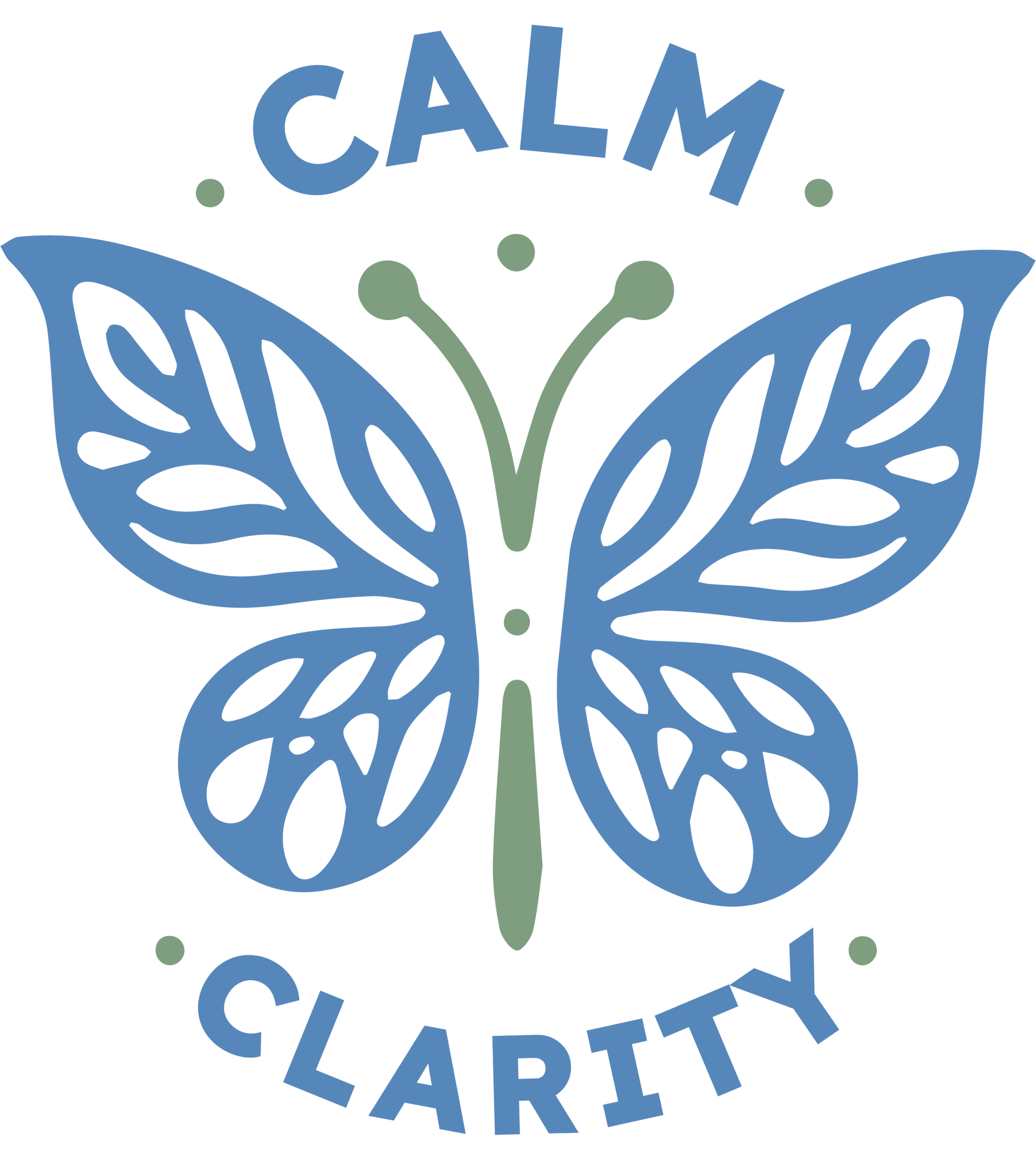Calm Clarity Therapy
Understanding the Link Between ADHD and Anxiety and How Therapy Can Help

Do you ever feel like your mind is constantly racing in multiple directions while simultaneously being on high alert? For many individuals, this isn't just a fleeting experience but a persistent reality where the characteristics of Attention-Deficit/Hyperactivity Disorder (ADHD) and anxiety intertwine. It can feel like a tangled knot of inattention, restlessness, worry, and overwhelm. At Calm Clarity Therapy in Lakewood, CO, we understand this complex relationship and want to shed light on how therapy can be a powerful tool in untangling this knot and fostering greater peace and clarity.
While seemingly distinct, ADHD and anxiety frequently co-occur. Several factors contribute to this connection:
Executive Function Challenges: ADHD often involves difficulties with executive functions like organization, planning, and emotional regulation. These challenges can lead to feelings of inadequacy, failure, and being overwhelmed, which in turn can trigger anxiety and/or depression. For example, consistently missing deadlines or struggling to manage tasks can fuel worries about performance and judgment which can lead to isolation and shutting down.
Sensory Sensitivities and Overwhelm: Many individuals with ADHD experience heightened sensory sensitivities. This can lead to feeling easily overwhelmed in noisy or stimulating environments, contributing to anxiety and avoidance behaviors.
Internal Restlessness and Worry: The internal restlessness often associated with ADHD can manifest as racing thoughts and difficulty quieting the mind, mirroring the cognitive patterns of anxiety. This internal "noise" can exacerbate worry and make it hard to relax.
Social Challenges: Difficulties with social cues, impulsivity, and inattention in social situations can lead to negative social experiences and feelings of social anxiety or rejection.
Shared Neurological Pathways: Research suggests potential overlaps in the neurological systems that regulate attention, impulsivity, and emotional responses, contributing to the co-occurrence of both conditions.
How Anxiety Can Mask or Exacerbate ADHD Symptoms
The presence of anxiety can sometimes make it harder to accurately identify and manage ADHD symptoms. For example:
Increased Focus (Driven by Worry): Anxiety might lead to hyperfocus on specific tasks out of fear of failure, which can sometimes be mistaken for good concentration. However, this focus is often driven by worry rather than intrinsic interest or controlled attention.
Avoidance Behaviors: Anxiety related to potential failures or social interactions might lead to avoidance of tasks or situations, which can look like procrastination or disengagement often seen in ADHD.
Internalizing Symptoms: Individuals with anxiety might internalize their struggles and try to mask their ADHD symptoms to avoid judgment, leading to increased internal stress and anxiety.
The Role of Therapy in Addressing Both ADHD and Anxiety
Therapy offers a safe and supportive space to explore the intricate relationship between ADHD and anxiety and develop effective coping strategies. Here's how it can help:
Accurate Assessment and Diagnosis: A thorough assessment by a therapist experienced in both ADHD and anxiety is crucial for understanding the unique presentation of your challenges.
Psychoeducation: Understanding the interplay between ADHD and anxiety can be incredibly empowering. Therapy provides information about both conditions and how they influence each other.
Cognitive Behavioral Therapy (CBT): CBT helps identify and challenge negative thought patterns and beliefs that fuel anxiety. It also teaches practical coping skills for managing worry and reducing avoidance behaviors. For individuals with ADHD, CBT can be adapted to address executive function challenges and improve organizational skills.
Mindfulness-Based Techniques: Practices like mindfulness meditation can help increase present moment awareness, reduce racing thoughts, and improve emotional regulation, benefiting both ADHD and anxiety symptoms.
Acceptance and Commitment Therapy (ACT): ACT focuses on accepting difficult thoughts and feelings while committing to values-driven actions. This can be particularly helpful for individuals with ADHD and anxiety who struggle with self-criticism and avoidance.
Skills Training: Therapy can involve learning practical skills to manage ADHD symptoms, such as time management, organization, and planning. As these skills improve, anxiety related to these challenges often decreases.
Emotional Regulation Skills: Therapy can help develop strategies to better understand and manage intense emotions, which can be a challenge for both individuals with ADHD and those experiencing anxiety.
Building Self-Compassion: Addressing the shame and self-criticism that often accompany both ADHD and anxiety is a vital part of therapy. Learning to treat yourself with kindness and understanding can significantly reduce overall distress.
Walk & Talk Therapy (Our Unique Approach): At Calm Clarity Therapy, our Walk & Talk sessions can be particularly beneficial for individuals with ADHD and anxiety. The movement and connection with nature can reduce restlessness, ease anxiety, and provide a less intimidating environment for processing thoughts and feelings.
What is the next step?
Living with the combined challenges of ADHD and anxiety can feel overwhelming, but it doesn't have to define your experience. Therapy offers a path towards understanding, managing, and finding greater peace within yourself.
Ready to explore how therapy can help you untangle the knot of ADHD and anxiety?
Learn more about our individual therapy services for ADHD and anxiety: https://www.calmclaritytherapy.com/services
Schedule a session: (720) 443-1021; info@calmclaritytherapy.com
We are in-network with most healthcare plans and Medicaid.
You don't have to navigate the complexities of ADHD and anxiety alone. With the right therapeutic support, you can develop effective strategies, build resilience, and cultivate a greater sense of calm and control in your life. Reach out to Calm Clarity Therapy in Lakewood, CO – we're here to help you on your journey towards greater well-being.
If you experience both ADHD and anxiety, what are some of the biggest challenges you face? What coping strategies have you found helpful? Share your insights in the comments below.





